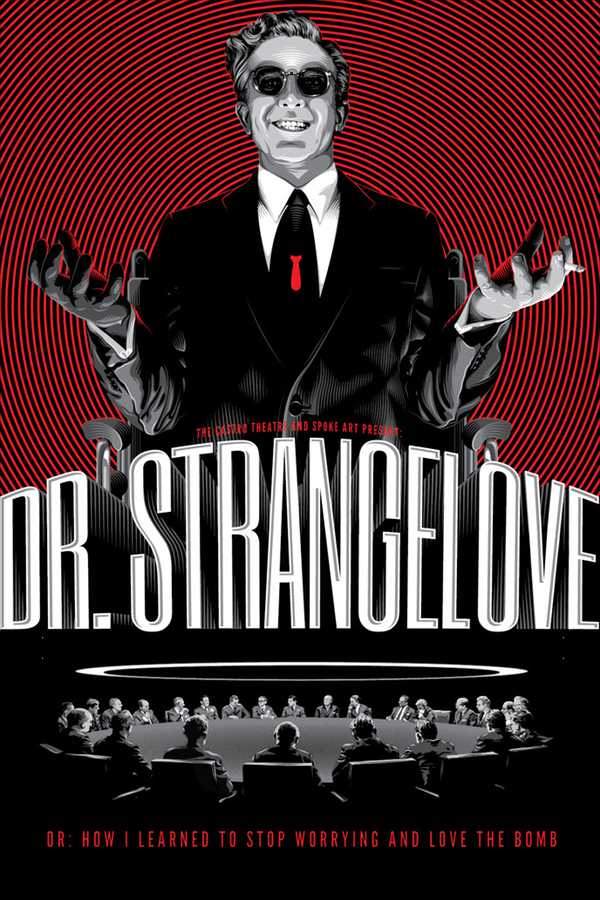On Monday, Feb. 18, the Murray Center will screen Stanley Kubrick’s “Dr. Strangelove” in the Campus Center Ballroom B, from 3 – 5 p.m., in anticipation of NJIT’s “Steps to a Nuclear Weapons-Free World” conference in April. The purpose of this viewing is to educate students and the greater NJIT community about nuclear weapons—including modern and historical challenges involving nuclear arms, current nuclear policies, and strategies toward disarmament. We encourage you to attend this screening, learn, and enjoy.
I first saw Stanley Kubrick’s “Dr. Strangelove” a year ago at the IFC Center in Greenwich Village while on a date with a friend.
It was a strange choice, I admit. To make matters starker, we were caught trying to decide between Hayao Miyazaki’s “Princess Mononoke” and Stanley Kubrick’s “Strangelove”. Did we want an intricately animated fantastical war? Or a black and white film about war?
Figuring we had nothing to lose, and that Kubrick is classic, we went with “Strangelove”.
I went in with nothing—no expectations, no knowledge of the plot, no idea what I was about to witness. I didn’t watch a trailer. I didn’t ask anyone what they thought of the movie. I’d never even seen a Kubrick film before.
And it was the absolute best thing I could’ve done for myself, because nothing can reasonably convey the ridiculousness that is “Strangelove” without giving a newcomer the wrong impression, or completely ruining the punchline of several jokes. That said, I’ll try.
The story behind “Strangelove” is that of an unhinged US Air Force general who orders a nuclear attack on the Soviet Union. The film follows the President of the United States, his advisors, Joint Chiefs of Staff, a Royal Air Force officer, and a Russian ambassador to the US in an American war room as they try to recall the bombers and prevent a nuclear apocalypse. The film separately follows the crew of one of the B-52 bombers that is deployed by the insane general as they try to deliver their payload.
At first glance, this storyline seems bland, boring, snore-inducing, and way too political for my tastes. I admit, 15 minutes in, I was questioning our decision and wondering if I just wasn’t cultured enough to appreciate fine art. But soon enough, that worry fell away.
The longer I watched, the more engrossed in the story I became. It slowly dawned on me that “Strangelove” was a Cold War satire. I was hooked.
From the American General’s blaze of fury temperament, to the B-52 pilot’s Western patriotism, and the President’s hopelessness (and to some extent, helplessness), every aspect was played up just right. It wasn’t so much as to be farcical or unbelievable. It wasn’t so little that the scenes were concerningly authentic. While certain scenes did cause some gut-wrenching and despair, they were all interrupted with giggles.
By the end, I was a convert. With tears of laughter in my eyes, I struggled to believe a film as blatantly satirical and critical of the United States’ foreign and nuclear policies could reach such acclaim—especially at the time of the film’s release in 1964.
Today, I realize that the film is more than humorous; it’s poignant. While the plot is entertaining, there’s more than a grain of truth to several key aspects of the storyline, and that’s what makes it so enjoyable…albeit, in a slightly horrific way.
In fact, with the threat of the Trump administration to pull out of the Intermediate-range Nuclear Forces treaty unless Russia complies within 180 days, the topic and film are more relevant than at the time of my viewing. The truth is, as long as countries have nuclear capabilities, movies like “Strangelove” will remain evergreen.































